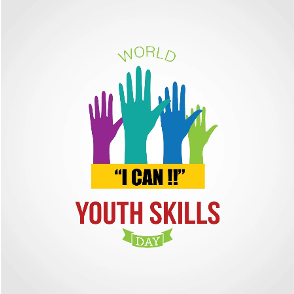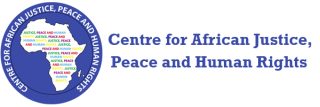
By: Jimena Villot
World Youth Skills Day is a day meant to generate awareness, and promote a discussion, on the importance of educating and training youth. It is essential to promote technical and vocational training, as well as developing other skills, which young people need to have in order to contribute and succeed in today’s world.
This day was first celebrated on July 15th 2015, after the United Nations General Assembly adopted a resolution in consensus, which was initiated by Sri Lanka and was later backed up by G77 and China to highlight the importance of youth skills development at a global level. The UN Secretary General’s Special Envoy for Youth, Mr. Ahmed Alhendawi, supported this initiative from early on, along with his office. Shortly after, the UN system in New York and Colombo followed and supported the resolution entirely. Through their work in skill development, the global network of WorldSkills collaborated to support development through this resolution.
WorldSkills collaborates and hosts skill competitions in many different countries of the world. The aim is to build confidence, empower communities and help fuel economies. They do so through inspiration to develop a passion for skills and pursuing excellence by hosting competitions and promotions. Through this, they develop skills through global training standards, benchmarking systems and enhancing the engagement in industries. Furthermore, they influence industries, governments and educators through cooperation and research, and building a global platform of skills for everyone. WorldSkills International fully supported the resolution and has collaborated by pursuing a WorldSkills day in their network.
The significance of this day relates to the Education 2030 mission, as it dedicates a considerable part of its attention to the development of technical and vocational skills, specifically when it comes to the access of this Technical and Vocational Education and Training. This initiative provides technical and vocational skills to young people in order for them to reach their goals in employment and entrepreneurship. This initiative also helps to address the demands on economic, social, and environmental nature by helping young people and adults to develop the skills they need. The promotion of education is very important as it also contributes to the elimination of gender inequality and ensures access to resources for those most vulnerable.
The world is currently working on recovering socially and economically from a global pandemic, in connection with challenges such as climate change, conflicts all over the globe, persisting poverty, rising inequality, fast developing technological changes, and in the midst of all of this, educational and employment challenges are not being considered. Throughout the world, education levels are insufficient, leaving young women and girls, young persons with disabilities, youth from poorer households, rural communities, indigenous peoples and minorities constantly being excluded from the socio-economic society. Not only that, considering the amount of conflicts all over the world, the victims of such conflicts that suffer the consequences of the violent situations and political instability are also excluded and have a tougher situation to come back from. Additionally, the current global crisis has fostered the development of new forms of labor, and transitions in workplaces which before had not happened. Many of these are regarding working from home, technological substitutes, or due to so many businesses closing and people being fired from their works, the global market has changed, and only the biggest competitors in some markets have remained. All these factors add uncertainty to the issues of how the global market will change after the pandemic ends, and bring about the question of what sets of skills will be most essential and what competences will be in demand.
The aim of World Youth Skills Day and the agencies working to enhance the work on this day, such as WorldSkills, United Nations, UNESCO International Centre for Technical and Vocational Education and Training (UNESCO-UNEVOC) is to address these challenges by reducing the barriers which impede access to the world of work, ensuring that when people achieve the skills necessary, they are recognised and certified. Furthermore, they want to put in progress a program to offer skills development opportunities for out of school young people and those who are not employed and have no education or training. The aim is to achieve the full engagement of young people in global processes in order to generate positive change and innovation, all over the world.
The process of promoting skills and education to enhance competences and the employment and education opportunities for young people is also a challenge which needs to be tackled in the African continent. While the continent has improved in its overall governance and transparency and accountability, according to the 2018 Ibrahim Index of African Governance, which measures and monitors their performance, there are still huge gaps in socio-economic inclusion and education. In order to bring overall improvement to the continent, these factors need to be improved. For example, the Index used the gap of critical skills in South Africa as an example and highlighted how worrying the levels of education in the country are. While youth enrolment in schools is improving, not just in South Africa but the rest of the continent as well, there are still persistent concerns regarding the education system. In order for the global market to function, skilled workers are needed. For these reasons, education plays a huge role in the opportunities available for people in sustainable economies, and therefore it must be promoted and be qualitative for people. ‘The Conversation’ reported that Africa is currently experiencing a skills gap deficit as 27 countries registered declining education scores in the last five years. This creates a decline which will be harmful to the future market economy and the people’s working opportunities.
It is harmful due to the challenges the world is facing now, including climate change and the rising conflicts, as well as poverty and lack of equality for many people, children and young people all over the world are not able to access education and therefore losing the opportunity to achieve the skills and competences necessary to contribute in the global market. This is both having a negative impact on the people and on the market, as it declines in workers and therefore of products, supplies, and causes harm to the economy.
For these reasons it is important to highlight World Youth Skills Day and the work which so many agencies are working on trying to promote. The Centre for African Justice, Peace and Human Rights aims to advocate for the right to quality education and therefore assists in promoting awareness for the challenges which so many people face all over the world. It is important that everyone is able to provide their support, however they can, and we promote more open and available access to education and training for everyone, everywhere.
Sources:
World Youth Skills Day | United Nations
World Youth Skills Day 2021: History, theme and significance (eastmojo.com)
World Youth Skills Day – 15 July (worldskills.org)
World Youth Skills Day history, meaning, significance, and other details (republicworld.com)
Education Quality and the Youth Skills Gap Are Marring Progress in Africa – Forbes Africa
